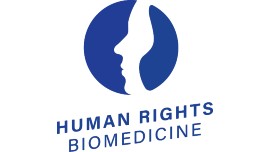Oviedo Convention and its Protocols
The Convention for the Protection of Human Rights and Dignity of the Human Being with regard to the Application of Biology and Medicine: Convention on Human Rights and Biomedicine (ETS No 164) was opened for signature on 4 April 1997 in Oviedo (Spain).
This Convention is the only international legally binding instrument on the protection of human rights in the biomedical field.
It draws on the principles established by the European Convention on Human Rights, in the field of biology and medicine.
It is a framework Convention aiming at protecting the dignity and identity of all human beings and guarantee everyone, without discrimination, respect for their integrity and other rights and fundamental freedoms with regard to the application of biology and medicine.
It sets out fundamental principles applicable to daily medical practice and is regarded as such at the European treaty on patient’s rights. It also deals specifically with biomedical research, genetics and transplantation of organ and tissues.
The provisions of the Convention are further elaborated and complemented by Additional Protocols on specific subjects.
 Convention and Protocols
Convention and Protocols
Status of Signature and Ratification of the Convention
(entered into force 1 décember 1999)
- Convention on Human Rights and Biomedicine (Oviedo Convention)
- Explanatory Report to the Convention on Human Rights and biomedicine
- Chart of Signatures and Ratifications
- Additional Protocol on the Prohibition of Cloning Human Beings
- Additional Protocol concerning Transplantation of Organs and Tissues of Human Origin
- Additional Protocol concerning Biomedical Research
- Additional Protocol concerning Genetic Testing for Health Purposes










